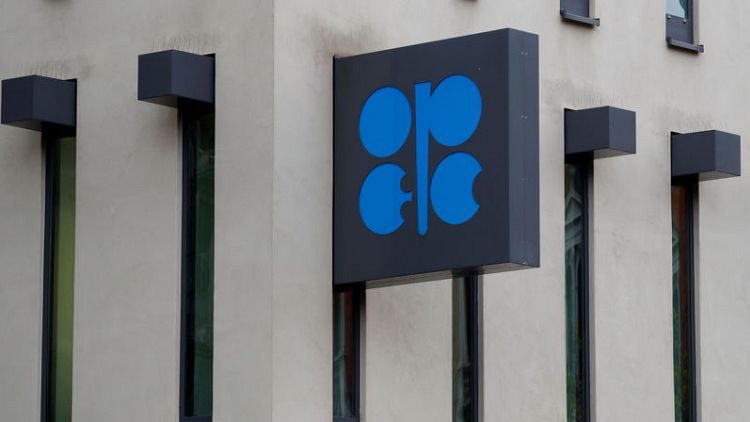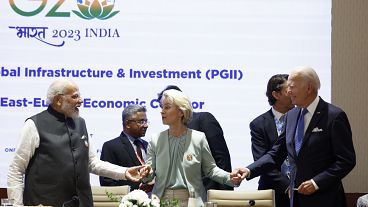By Shadia Nasralla, Olesya Astakhova and Bozorgmehr Sharafedin
(Reuters) - Top oil producers Saudi Arabia and Russia will seek approval for deeper output cuts from OPEC and allies on Friday in an attempt to support prices and head off a new glut building in 2020.
The group of more than 20 producers is considering an extra 500,000 barrels per day (bpd) in cuts for the first quarter of 2020 to take the total to 1.7 million bpd, or 1.7% of global demand, Russian energy minister Alexander Novak said on Thursday.
OPEC and allied producers, the so-called OPEC+, pump more than 40% of the world's oil. OPEC+ will meet on Friday with the focus on how the additional cuts are distributed.
"The statement following the meeting on both production targets and their duration will be critical for price discovery," said analysts at Jefferies.
OPEC watchers had expected OPEC+ to extend cuts at least until June or December 2020 but non-OPEC Russia objected to the move.
The cuts are aimed at supporting crude oil prices and guarding against oversupply as non-participants led by the United States raise supply to fresh records.
Benchmark Brent oil prices <LCOc1> were steady on Friday near $63.50 per barrel.
OPEC is likely to shoulder 340,000 bpd in fresh cuts and non-OPEC producers an extra 160,000 bpd, one source said on Friday.
OPEC's deliberations on Thursday in Vienna took more than five hours, prompting the cancellation of a news conference and a gala dinner for delegates aboard a boat on the Danube.
Under their current pact, due to expire in March 2020, 11 of OPEC's 14 member states have agreed to cut about 800,000 bpd of output, with Iran, Libya and Venezuela exempted from participating.
OPEC+ has pledged to cut 1.2 million bpd overall and along with Russia includes nine others - Azerbaijan, Bahrain, Brunei, Kazakhstan, Malaysia, Mexico, Oman, South Sudan and Sudan.
The sticking point include individual quota redistribution as well as compliance, with Saudi Arabia cutting more than required in order to offset overproduction from Iraq and Nigeria.
"A scenario where the Saudis 'absorb' the majority of a 500,000 bpd cut and formalise their target at current output levels would not be impactful to the market - unless Iraq and Nigeria come into compliance with their targets," said Jefferies analysts.
ING bank analysts said the key question was whether the new cuts were real or just a matter of Saudi Arabia formalising its current over-compliance.
"Obviously, if it is the latter, the market will be disappointed, as this will do little to eat into the surplus over the first quarter," ING said.
Saudi Arabia needs prices of at least $80 per barrel to balance its budget, much higher than most other producers, and also needs to support the share flotation of its national oil company Saudi Aramco.
Shares in Aramco are expected to begin trading this month following pricing on Thursday that made it the world's biggest IPO.
Graphic - OPEC's share of global oil supply shrinks: https://fingfx.thomsonreuters.com/gfx/ce/7/6035/6018/Pasted%20Image.jpg
(Reporting by Rania El Gamal, Alex Lawler and Ahmad Ghaddar; writing by Jason Neely; editing by Dmitry Zhdannikov)



